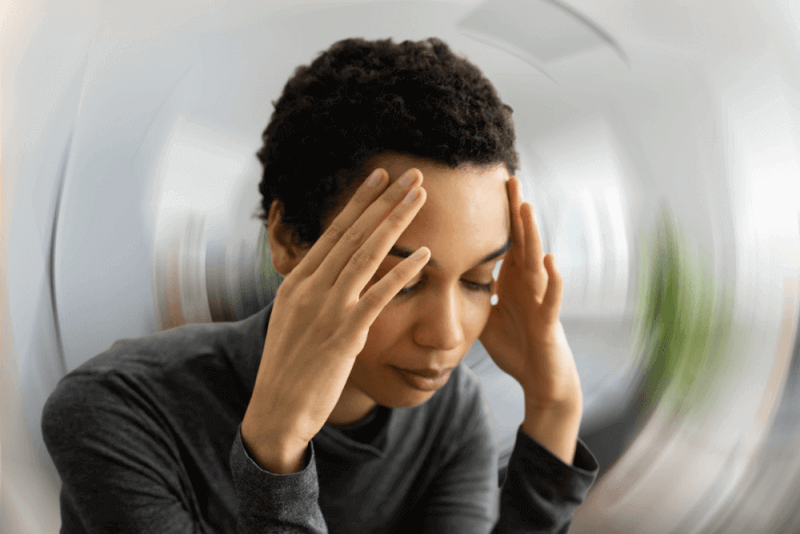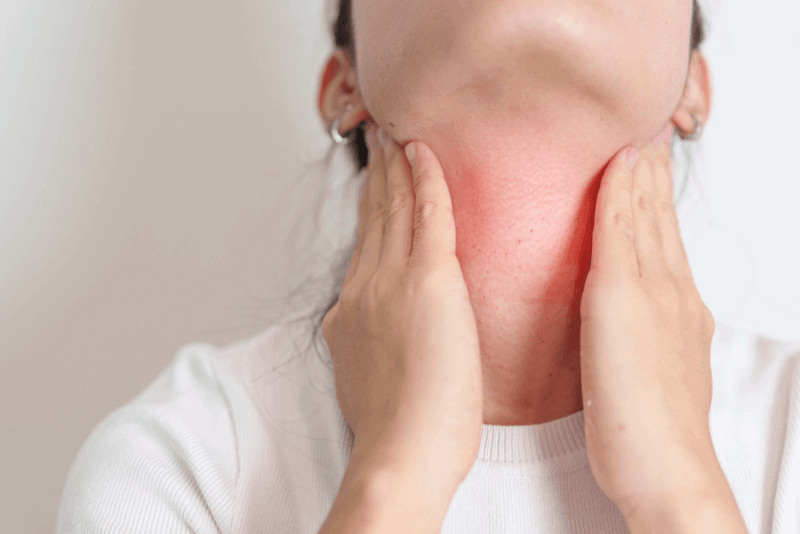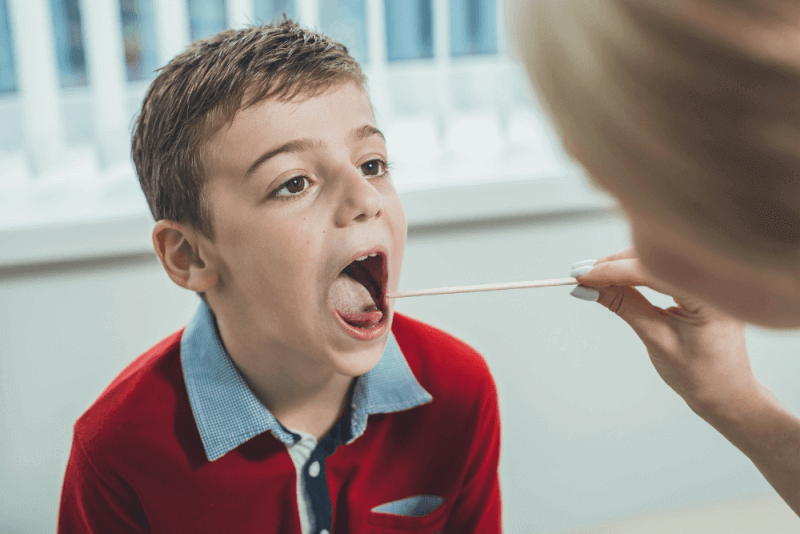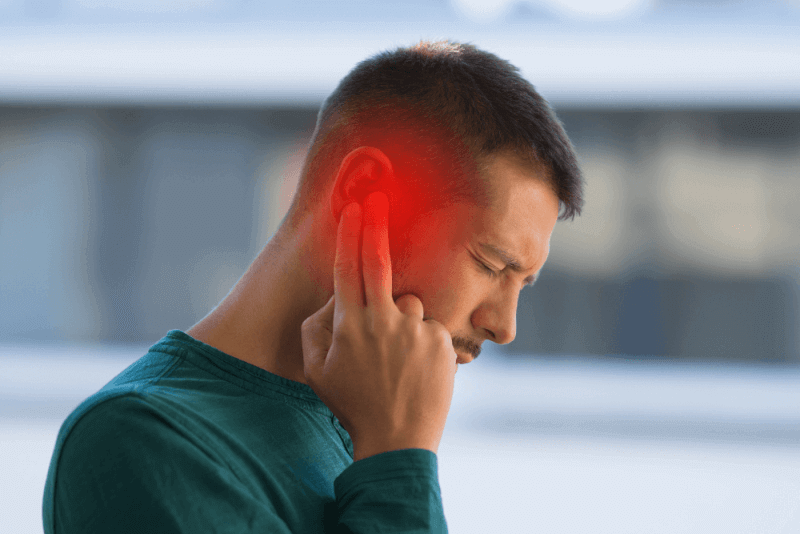30-Second Summary
- Vertigo is the sensation of spinning, where you or your surroundings seem to move.
- It can be caused by an issue in the brain or inner ear.
- There are two types: peripheral and central vertigo.
- The treatment for vertigo depends on its type and underlying cause.
What is Vertigo?
Vertigo is characterized by a feeling of dizziness, where there is no movement but you feel as if you and your surroundings are moving. This is accompanied by symptoms such as loss of balance, vomiting, and nausea. These symptoms may be caused by a problem in the brain or inner ear.
Vertigo is more of a symptom than a disease itself. It can be severe and sudden. This condition can make it difficult to maintain your balance and perform daily tasks. Sudden vertigo attacks may be short-lived or last longer. Vertigo can make standing or walking difficult.
What is Neurological Vertigo?
Neurological vertigo is often mistaken for a disease, but it is actually a symptom of another condition. In neurological vertigo, dizziness arises due to an issue in the body's balance system.
While symptoms can sometimes be mild, in some cases, it may be difficult for the person to stand, making life challenging. Vertigo attacks may last for days or even weeks. Individuals experiencing neurological vertigo may also have nausea, vomiting, and balance problems. Common causes of neurological vertigo include:
Symptoms of Neurological Vertigo
The primary symptom of neurological vertigo is the feeling that you or your surroundings are moving and spinning. This sensation of movement and spinning can cause nausea and vomiting. Other symptoms may include:
- Dizziness
- Ringing in the ears
- Loss of balance
- Nausea and vomiting
- Trouble focusing the eyes
- Hearing loss in one or both ears
If your vertigo is related to brain problems, you may have additional symptoms:
- Double vision
- Facial paralysis
- Weakness in the limbs
- Speech difficulties
- Difficulty swallowing
- Problems with eye movement
- Tendency to fall asleep during the day
- Confusion or altered consciousness
Types of Vertigo
There are two types of vertigo: peripheral and central vertigo. Peripheral vertigo is caused by an issue with balance in the inner ear, particularly in the vestibular labyrinth or semicircular canals. In peripheral vertigo, there may also be a problem with the vestibular nerve.
Central vertigo usually stems from a problem in the brain, brainstem, or the back of the brain. Central vertigo can be caused by a brain hemorrhage, tumor, vascular disorders in the brain, or an aneurysm in the blood vessels.
There are medication and other treatment options available for both types of vertigo. Your specialist will determine the type of vertigo and its cause, and initiate appropriate treatment.
Peripheral Vertigo
Peripheral vertigo is the most common type of vertigo, with most cases resulting from a problem in the inner ear's balance mechanism. Common causes of inner ear problems leading to peripheral vertigo include:
- Meniere's disease
- Vestibular neuronitis
- Benign paroxysmal positional vertigo (BPPV)
- Aminoglycoside antibiotics, diuretics that are toxic to inner ear structures
- Injury (such as head trauma)
- Irritation and swelling in the inner ear
- Pressure from a non-cancerous tumor on the vestibular nerve
In Meniere's disease, vertigo symptoms are sometimes combined with hearing loss. Doctors are not entirely sure what causes this condition, but stress, caffeine, salty foods, or alcohol can trigger it.
Vestibular neuronitis causes severe dizziness that comes on suddenly and lasts for 2 to 3 weeks. This condition may be caused by a viral infection.
BPPV occurs when small crystals in the fluid of the inner ear become loose and float. The movement of fluid and crystals can cause dizziness. Ear injuries can sometimes lead to BPPV.
Other inner ear problems that can lead to peripheral vertigo include:
- Labyrinthitis
- Superior semicircular canal dehiscence syndrome (SSCDS)
- Labyrinthitis
Labyrinthitis can develop due to a viral infection in the inner ear. Perilymph fistula can occur due to sudden pressure changes from head trauma or scuba diving. SSCDS is caused by a defect in the bony part of a canal that carries fluids in the inner ear. Common symptoms of peripheral vertigo include nausea, sweating, ear problems, and vomiting.
If your peripheral vertigo is caused by inner ear inflammation, you may feel fullness in the ear and experience ear pain. Vertigo that appears suddenly and disappears suddenly is likely peripheral vertigo. In peripheral vertigo, the eyes may move uncontrollably. These symptoms typically appear only in the first few days and then disappear.
Central Vertigo
Central vertigo can appear suddenly without warning and may last for a long time. The symptoms are more severe than those of peripheral vertigo. You may have difficulty walking or standing. Uncontrolled eye movements are also seen in central vertigo, but these last longer than in peripheral vertigo.
Hearing problems, which are common in peripheral vertigo, are less frequent in central vertigo. Other common symptoms include difficulty swallowing, headaches, and weakness. Causes of central vertigo, often related to a brain disease or injury, include:
- Migraine
- Brain tumor
- Strokes
- Disease or infection
- Head injuries
- Transient ischemic attacks (small strokes that do not cause permanent damage)
- Vascular disease
- Seizures
- Certain medications like aspirin and alcohol
Vertigo Symptoms
Vertigo is often accompanied by symptoms such as dizziness, loss of balance, and a feeling of emptiness in the head. Common symptoms include:
- Nausea, vomiting
- Ringing in the ears
- Dizziness
- Trouble focusing the eyes
- Loss of balance
- Headache
- Motion sickness
- Feeling of fullness in the ear
- Sweating
- Hearing loss
- Altered consciousness
- Weakness in the arms and legs
- Speech difficulties
- Double vision
Vertigo Treatment Methods
Your specialist will develop a treatment plan based on the underlying condition causing vertigo. BPPV, the most common form of vertigo, can be treated with a 15-minute exercise known as the Epley maneuver. Other maneuvers, such as the Semont or Barbecue maneuvers, are also available.
Correction maneuvers are performed in multiple sessions. These movements help reposition the crystals responsible for balance in the inner ear. If vertigo is caused by Meniere's disease, vestibular neuronitis, or labyrinthitis, anti-inflammatory drugs can help alleviate symptoms.
Physical therapy can also be used to improve a person's balance issues. Some exercises are designed to prevent falls and strengthen muscles.
In Meniere's disease, reducing caffeine, alcohol, and salt intake can help prevent vertigo. People with vertigo should make it a habit to drink plenty of water daily. For certain brain tumors and ongoing health problems like stroke, medications may be used to reduce symptoms and the sensation of spinning.
A stroke in the brain can lead to restricted movement, slurred speech, in addition to vertigo. In such cases, it is important to seek emergency medical attention.
TRV Chair
One of the vertigo treatment options is the TRV chair, especially effective in cases of crystal displacement. The TRV chair is used not only for treatment but also for diagnosis. Benefits of the TRV chair include:
- The TRV chair primarily ensures an accurate diagnosis.
- It can easily be used for patients with conditions such as obesity, panic disorder, or lumbar hernia, making it difficult to perform tests.
- The integrated and advanced camera in the chair allows for better monitoring of the patient's eye movements.
- Some patients require 360-degree rotation for treatment. This procedure, which may not be possible on a stretcher, is facilitated by the TRV chair.
- Even in patients where treatment with a stretcher has failed, improvement can be seen.
Vertigo Exercises
Vertigo exercises include the Epley maneuver, Semont maneuver, and protective maneuvers. These exercises are very effective in treating the most common type of vertigo, BPPV. Your doctor will instruct you on how to perform these exercises.
How is Vertigo Diagnosed?
The diagnosis of vertigo begins with the patient presenting with the primary symptom of dizziness, along with vomiting, loss of balance, vision, and hearing problems. Based on the symptoms, the specialist determines the type of vertigo.
If central vertigo is suspected, a neurologist will make a definitive diagnosis and start appropriate treatment. If peripheral vertigo is suspected, the patient will be evaluated by an ENT specialist, who will plan the necessary treatment.
Various tests related to the inner ear are conducted to diagnose vertigo. These tests help determine the type of vertigo. Some of the tests performed for vertigo diagnosis include:
- Doppler ultrasound
- MRI
- Catheter angiography
- CT angiography
- Blood tests
- Caloric stimulation
- EEG
- Electronystagmography
- Walking test
- Brainstem auditory evoked potentials (BAEP)
- Lumbar puncture
- Head impulse test
Life with Vertigo
Depending on the cause of vertigo, there are things a person can do to minimize and alleviate symptoms:
- Sleep with your head slightly elevated on two or more pillows.
- Avoid bright lights.
- Avoid reading when symptoms occur.
- Do not get out of bed suddenly. Sit on the bed for a minute before standing up.
- Instead of bending down to pick something up from the floor, squat down.
- Perform simple exercises to reduce your symptoms.
- Avoid extending your neck.
- Move your head slowly and carefully during daily activities.
- Perform exercises that trigger vertigo, allowing your brain to get used to the movements and reduce symptoms over time.
- Avoid driving, operating heavy machinery, or climbing when symptoms occur.
What to Do During a Vertigo Attack?
During a vertigo attack, if there is a place to sit, sit down and move to a safe area, staying still. The important thing during an attack is to remain still. Stay calm, avoid stressful thoughts, and try to relax mentally during a vertigo attack.
During a vertigo attack, keep your head still, focus on a single point, and try to reduce the intensity of dizziness. Another important thing to do during a vertigo attack is to focus on your breathing to help calm down. Breathing exercises can help minimize the symptoms during vertigo attacks.
Precautions for Vertigo Patients
One of the most important factors for vertigo patients is maintaining a regular sleep schedule. Poor and irregular sleep can prevent proper rest, leading to vertigo attacks. Therefore, sleep must be regular.
It is also crucial for vertigo patients to avoid stress and high-paced environments. Excessive stress negatively affects the immune system, and a strong immune system is essential for resisting diseases. Consuming healthy and fresh foods, avoiding excessively salty and fatty foods, and taking vitamin and mineral supplements are other important aspects.
After vertigo treatment, avoid strenuous sports and sudden movements. Drink plenty of fluids and avoid caffeine-containing foods and drinks like tea and coffee. It is also important to avoid smoking and alcohol.
Diet for Vertigo Patients
Dietary changes in vertigo patients can help reduce the symptoms of vertigo attacks. Therefore, people should pay attention to what they eat and drink. A vertigo diet can help with recovery from vertigo. To reduce vertigo attacks, it is important to thoroughly investigate the cause of vertigo and develop a treatment and diet plan accordingly. This diet should focus on the most ideal foods to reduce attacks and avoid foods that may trigger vertigo.
Avoid beverages like soda or concentrated drinks, which contain too much salt and sugar. These are among the drinks that can cause dizziness.
Vertigo patients should also be cautious about the following:
- Caffeine intake: Caffeine is found in tea, coffee, chocolate, and cola. Research shows that caffeine increases cellular excitability. Caffeine intake should be regulated, especially for people with migraines and Meniere's disease. Caffeine consumption should be minimized.
- Smoking: Nicotine constricts blood vessels, slows blood flow, and can cause vestibular problems. Smoking exacerbates these issues and increases the frequency of vertigo attacks.
- Salt intake: Excessive salt causes fluid retention in the body, leading to fluid balance abnormalities. High salt intake can disrupt the vestibular system. People with migraines and Meniere's disease should limit their salt intake. Excessive salt can trigger and worsen vertigo attacks.
- Alcohol consumption: Alcohol dehydrates the body. Just as excessive salt negatively affects fluid balance, alcohol also creates imbalances in body fluids. Alcohol can cause vertigo attacks, nausea, vomiting, and migraines, as well as delay recovery. Wine, in particular, is a major trigger for migraine attacks.











